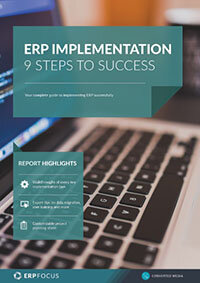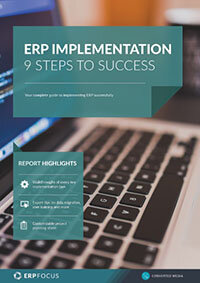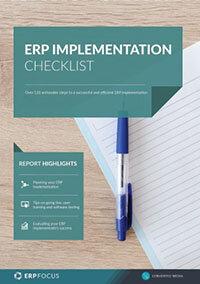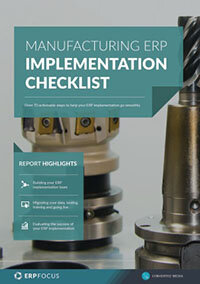Risky business? Why looking at ERP and risk management pays off
Is an ERP project risky business?
It typically is, because risk is commensurate with the scale of the ERP project. The more areas of the business an ERP system will impact, the greater the associated risk.
This likely comes as no surprise to an organization heading into active ERP evaluation, selection and implementation. For most organizations, the most pervasive risks typically cause cost overruns, project delays and what is commonly referred to as project scope creep.
To work as effectively as possible, it’s important to know what causes risk and how a project team can address it to create an ERP risk management plan, because no enterprise software implementation project comes without risk.
Business risk vs project risk
In our context, risk is defined as a chance of exposure to adverse consequences of future events. When looking at this issue, it is important to distinguish between business risks and risks to the project.
Implement your ERP successfully with this 11-step guide to ERP implementation success
Business risks emerge for a variety of reasons, including:
- Legislative changes such as any new mandates from regulatory agencies
- Environmental issues
- Business stability
- Business performance
- Market competition, economic forces
- Intersection points with the project itself
- Validity of the business case
- Project not fulfilling expectations
- Organizational impacts
On the other hand, project risks can arise from:
- Supplier issues
- Problems with a third-party service provider
- Contractual issues
- Organizational issues
- Conflicts with additional staff responsibilities or availabilities
- Issues with project culture
- Personal issues
- Training issues
- Shortage of staff and skills
- Process changes not accepted
- Cultural clashes between customer and supplier
Evaluating ERP risk
To help mitigate risk, we believe that ERP risk management methodologies should be woven into the fabric of the project and be part of the journey from the start.
Risk management involves assessing risk areas such as:
- Project organization risk: look at the ERP Project steering committee, the project manager, and the team process owners. Are the right people in the right positions?
- Scope risk: is the scope of the project possible and realistic?
- Readiness risk: are there readiness issues and risk?
- Schedule risk: are schedule expectations defined and are they realistic?
- Budget risk: is the project properly funded?
We also suggest assessing the risks of poor end-user training, or the potential for user resistance of the new system. It’s a best practice to consider the training and education program, to make sure users will be adequately trained in the use of the system. We’ve seen cases where an improved education and training program reduces the risk of end-user resistance.
ERP risk management best practices
From the projects Ultra Consultants has guided, we see risks typically caused by not considering all the elements impacted across cost, timeline, and scope – the three key dimensions of an ERP project.
The need to recognize these risks emphasizes just how important the planning phase is in forming an ERP risk management plan.
The most successful organizations employ a structured approach to risk analysis and risk action that goes through the planning phases and the other phases of the ERP project.
It’s only with this strategic approach can an organization be better positioned to reduce exposure to risk.
By Jeff Carr, founder and MD of Ultra Consultants
Free white paper

ERP Implementation: 9 steps to success
The 9 proven steps you should follow when implementing ERP

Featured white papers
-

ERP Implementation: 9 steps to success
The 9 proven steps you should follow when implementing ERP
Download -

ERP Implementation Checklist
Over 120 actionable steps to implementing a new ERP successfully
Download -

Manufacturing ERP Implementation Checklist
Over 70 actionable steps to rolling out new manufacturing ERP software
Download
Related articles
-

The case for multi-tier ERP implementations
Learn more about multi-tier ERP implementation and why you might need one
-

Secret KPI: Why Your ERP Implementation Team Matters More Than Software
Learn how Godlan ensures successful ERP implementation for manufacturers with proven strategies &...
-

An example ERP implementation team structure for your project
Learn about three key elements of an ERP implementation team and the individuals who contribute w...

